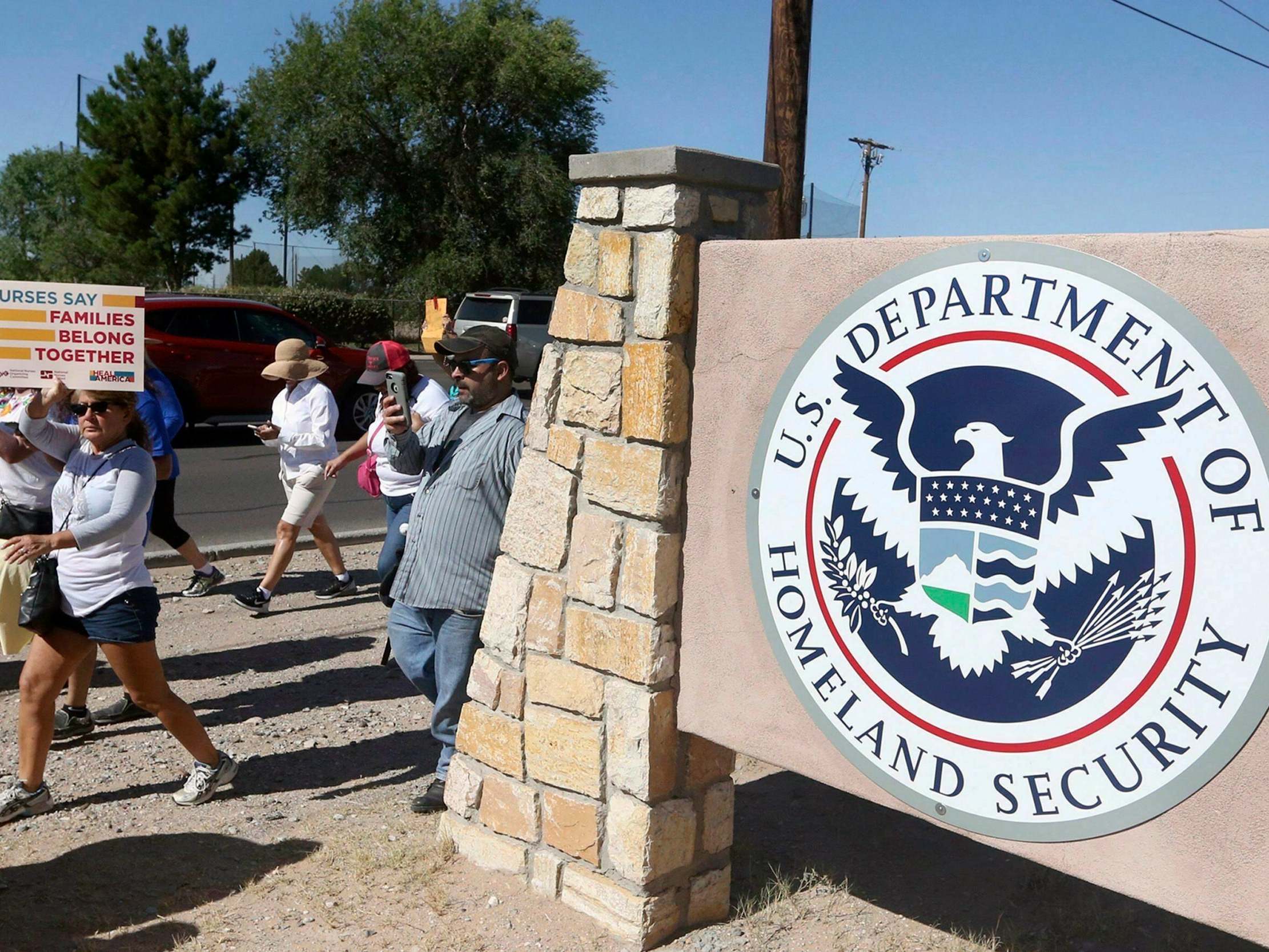The Independent's journalism is supported by our readers. When you purchase through links on our site, we may earn commission.
I'm an immigrant in America on an 'Einstein visa'. But my parents have never been allowed to visit me
When my wife, who was returning from Pakistan, accidentally told the immigration agent that she was happy to be coming home, she was publicly berated. 'Your home is here,' the agent said pointing to her green passport as he shoved it in her face

I am an alien of extraordinary ability.
No, really: that is my official designation after I successfully applied for a green card through the “Einstein Visa” pathway.
The first time I left Pakistan – the country I was born, raised and educated in –was a decade ago after I finished medical school. In the 10 years since, the United States and its people have given me every imaginable professional opportunity. In addition to training in the best hospitals in the country, I have written two critically acclaimed books. And yet there is another side to my life, a schism that every immigrant faces in this country – no matter how “extraordinary” they might be.
Recently, while speaking to Terry Gross about my new book, State of the Heart, the conversation steered in a direction that brought me to tears. For the last few years, despite all my professional successes and the birth of my now almost four-year-old daughter, my parents have been refused visas to come see us. In fact, my mother had her valid visa cancelled the day she was about to board a plane to come see her first newborn granddaughter. No reason has ever been provided as to why.
While current political discourse ostensibly focuses on illegal immigration, no immigrant paying attention is fooled into thinking this is about who is here legally or illegally: the xenophobic, racist and nativist tendencies driving the current climate were only crystallized when the crowd at Trump’s presidential rally in my resident state of North Carolina started chanting “send her back!” in reference to Ilhan Omar and three other congresswomen of color. Rising anti-immigrant sentiment in the United States is affecting immigrants regardless of their accomplishments. Not only am I constantly asked “where are you from?”at times, I too have been told to go back to my country.
When my wife, who was returning from Pakistan, accidentally told the immigration agent that she was happy to be coming home, she was publicly berated for even imagining that one day the United States could be her home. “Your home is here,” the agent said pointing to her green passport as he shoved it in her face.
The national rhetoric against immigrants has created a culture of fear, with many immigrants retreating into the shadows. I, however, am lucky and cherish the moment when someone, often a patient, asks me where I am from. I immediately tell them that I am from Pakistan, hoping that through me and the work I do, they might be able to overcome some of the prejudices they are fed. Sometimes, this backfires, when one patient told me: “A good Pakistani usually blows things up.” But even this woman, who was really a good person at heart, realised that she was wrong about me. A few days later, when she could barely breathe and was on the verge of being connected to a breathing machine, she held my hand and looked me right in the eyes.
“Doc, I trust you,” she said.
The same day that I spoke to Gross, I filled out applications for US citizenship for myself and my wife. I did so with a belief that the ideals this country was built on are worth fighting for. Even though we cannot vote, immigrants need to continue to invest in this society through other means, to shape a discourse that acknowledges how we contribute to the betterment of the people of this country.
Most immigrants I know just want to be able to fly under the radar, fearing that speaking out about their fears might put a target on their back. I too, wish to be known as a physician who happens to be an immigrant rather than an immigrant who happens to be a physician. I too, would like people to focus on the matter of my prose rather than the colour of my skin. I too, would want people to listen to what I say rather than the accent I say it with.

Yet the truth is that for now, our very being is the target many need. We must accept that despite our wishes, we will continue to be politicised until this pan-continental tide turning against multiculturalism is beaten back. America is more than a country: It is an idea that a society can be built where opportunity is equitable and where people can succeed both as professionals but also as human beings part of a just and fair collective. This idea, though, is being actively battered and immigrants cannot remain silent and hide in the shadows.
We have come too far to turn back now.
Join our commenting forum
Join thought-provoking conversations, follow other Independent readers and see their replies
Comments
Bookmark popover
Removed from bookmarks